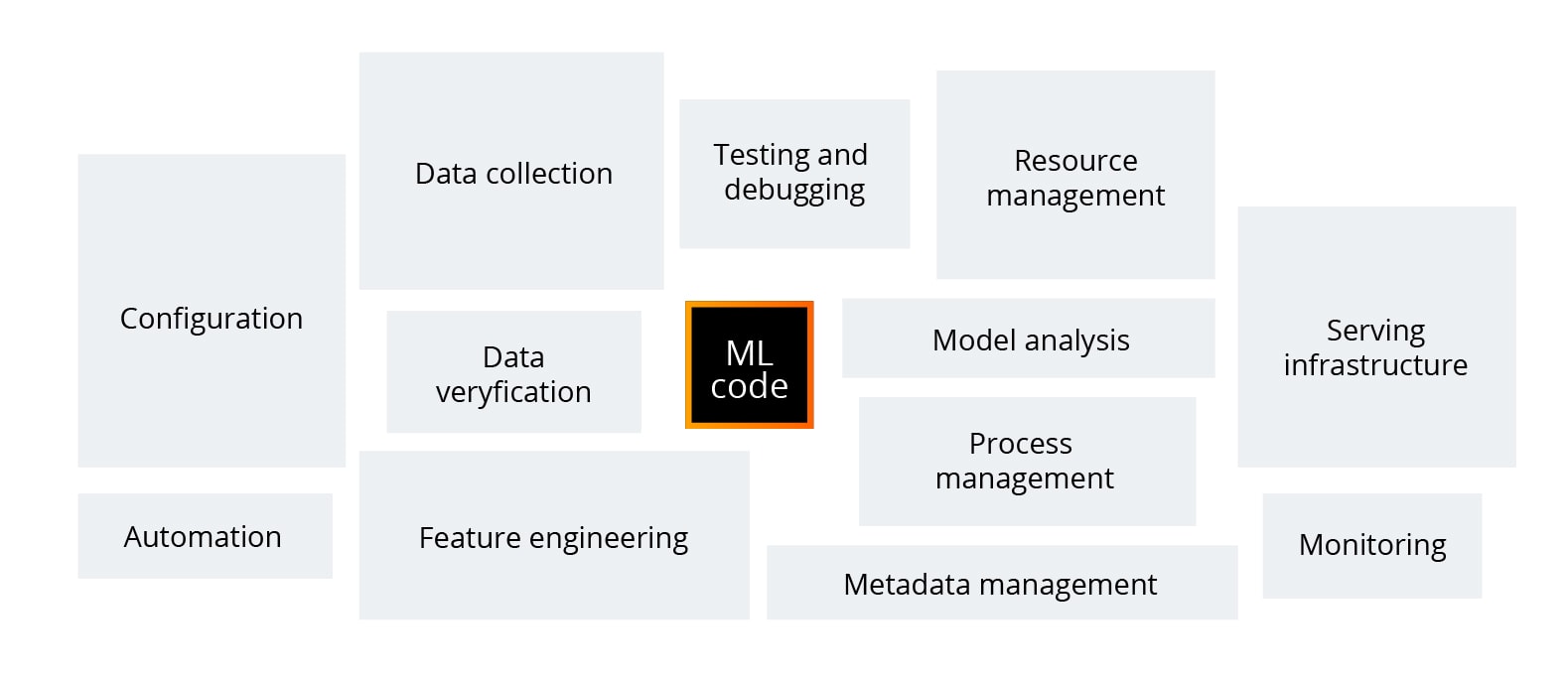
Why is MLOps just perfect for pessimistic hipster mathematicians who got fed up with hyperparameters tuning?
We all know some job professions that are commonly claimed to be performed only by a specific group of people - naturally equipped with particular characteristics. Let’s take surgeons: above all, they are expected to be extremely precise. Maybe besides orthopedists, with all their hammers, drills and saws – no offence. How about psychologists? In order to understand their patients, they need to be very empathetic and analytical. Are there any super powers that an MLOps should have then?
What is MLOps?
Before we dive deeper into the actual topic, it would be good to take a step back and describe what an MLOps actually is. Following Google Cloud Docs:
MLOps simply means applying DevOps practices to ML systems, where Dev stands for system development and Ops for system operations.
The aim of MLOps is to take care of the entire ML solution lifecycle in production, by monitoring and automating all steps of the solution. And by saying all steps, we don’t mean just the ML model. In fact, an ML solution is composed of a vast and complex range of surrounding elements, such as data collection, data verification, model analysis, testing and debugging, serving infrastructure, monitoring, and many more.
MLOps – going beyond PoCs
As MLOps is still quite a new concept, there aren’t many people specialising in it. Currently it’s a niche area, but likely to grow very quickly to accommodate huge demand for commercial applications; in fact, much quicker than might be expected. In the times of widespread digital transformation, especially in the post-covid reality, and the emerging need for more sophisticated data processing tools, such as ML methods, it’s just a matter of time when companies that are already building ML solutions, will have to go beyond the Proof-of-Concept stage and move on to productionise their ML solutions. But before all that hype comes to pass, MLOps can simply be composed of IT-world hipsters filling an awesome niche. Sounds fancy, right?
The art of anticipation
Mathematicians are well-known for their rigorous attitude to solving problems. Physicists for example are most often satisfied with MVPs like ‘rule works for n=3 dimensional space’, while mathematicians in order to acknowledge such a rule, would start checking if the rule still applies if they take any n∈ℕ. They will try to verify as many assumptions as possible to prove that the solution is working properly. At least that’s what they have been taught for so long.
You might start wondering now, ‘Okay, the above makes some sense, but how dare we require MLOps to be pessimists?’. A well-productionised ML system should be prone to bad scenarios and deal with them efficiently. And who’s better at foreseeing worst-case scenarios than pessimists? This should be a special type of pessimist, though. I would call that type an ‘active pessimists’. An active pessimist, as opposed to a ‘passive pessimist’, not only anticipates a possible problem but also prepares an effective solution to it. This natural characteristic of predicting what can go wrong in the process may be of much help in creating robust ML systems.
MLOps & DevOps
Last but not least, many graduates of mathematics end up working with data: either as data engineers, data analysts, data scientists, or ML engineers. That’s not a surprise since they are believed to be most exposed to numbers and calculations, as compared to other people. The more knowledge they have about different stages of data solution, the better.
However, practice shows that in most cases, hardly anyone touches the deployment stage. ML solutions, when productionised, are quite often at the MLOps Level 0, which is basically a manual process.
But here’s the catch: DevOps is a broad field that needs to be explored first if one wants to become an MLOps. Consequently, I believe that the experience in working with data at different stages with all the above-mentioned aspects make such DevOps adept an even better MLOps engineer.
Did you get fed up with hyperparameters tuning of your models? Maybe it’s time to dive deeper in DevOps. Your top skills and inborn traits might be just the perfect fit for this feat.
Sources:






